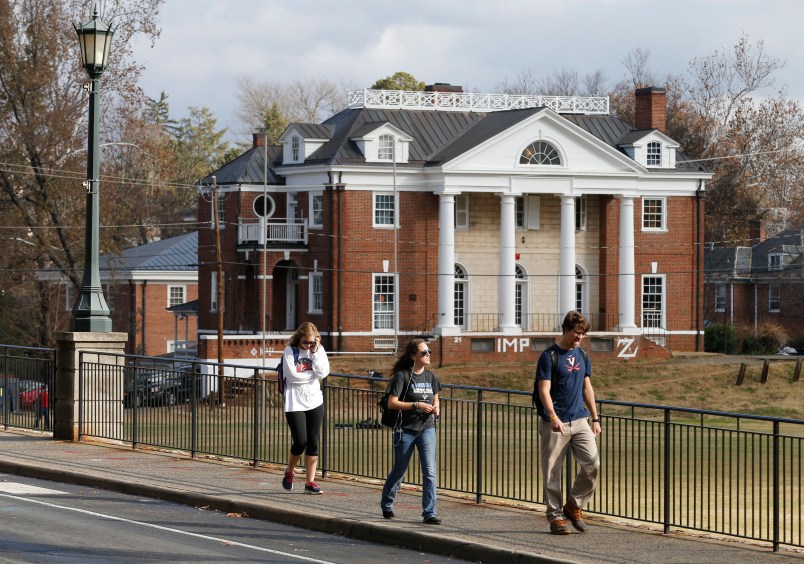Charlottesville, Virginia police said Monday they have found no evidence to confirm that an alleged gang rape had taken place at a University of Virginia fraternity.
Charlottesville police Capt. Gary Pleasants told TPM by phone that the department, which opened an investigation at the request of the university, has found “no basis to believe” that the alleged gang rape detailed in a Rolling Stone article by a student named “Jackie” occurred at UVA’s Phi Kappa Psi fraternity house.
The police department is still investigating the allegation, Pleasants said.
UVA reinstated Phi Kappa Psi Monday after being informed by police that there was no reason to keep the fraternity under sanctions.
The Columbia Journalism School was conducting an independent review of the disputed Rolling Stone article after other news outlets, most notably the Washington Post, raised questions about writer Sabrina Rubin Erdely’s reporting process that eventually forced the magazine to say it “misplaced” its trust in its source.







Not sure that there is much more that can be said about this disaster that was not already said when TPM had an article up in December.
I’m a fan of Rolling Stone, especially the reporting of Matt Tiabbi. Sadly the magazine failed horribly with this article and now it’s a serious setback to the efforts at making rape victims comfortable coming forward to report what happened to them.
I don’t see why a fictitious report by one individual should deter a report of an actual event by another. Every person that is the victim of a crime should feel confident of coming forward to report the crime and the identity of the perpetrator or perpetrators if known. The gender of the individual, or the nature of the crime should not make a difference. Any law enforcement individual who takes any other stance should be sanctioned. Even in this case, “Jackie” should receive full consideration of the law enforcement community. Any questions of credibility or motive should be addressed as part of the investigation, not pre-judged up front. The mistake the reporter made here, and Rolling Stone, was a failure to exercise adequate skepticism. In the case of the reporter it may have been a case of confirmation bias. In the case of the magazine, one expects that an award-winning journalist will act professionally. Both disappointed their readers and the general public by failing to perform and in doing so did an injustice to the university and the fraternity. The attention that the case generated could actually advance awareness of sexual violence and therefore some positive outcome, even if the case itself was unfounded.
What evidence would they have found at this point? One witness, intoxicated at the time, interviewed years later. No rape kit. Unless they were to get an unprompted confession, there’s not much way another result could be possible.